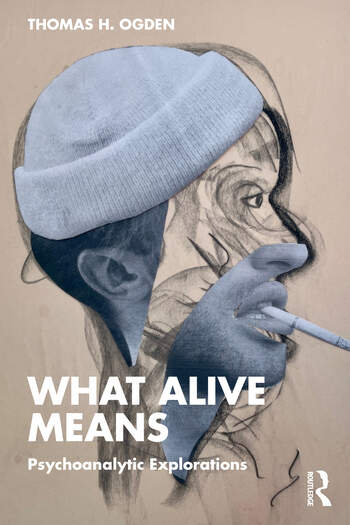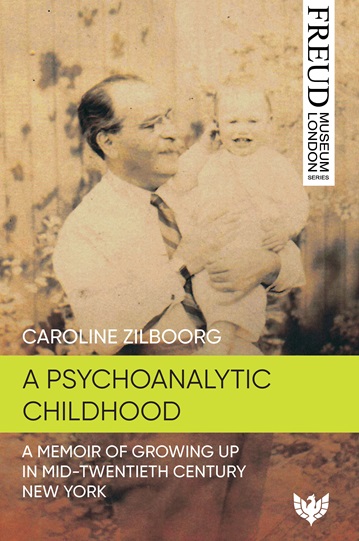Subjective Experience: Its Fate in Psychology, Psychoanalysis and Philosophy of Mind

Book Details
- Publisher : Routledge
- Published : March 2024
- Cover : Paperback
- Pages : 262
- Category :
Psychoanalysis - Catalogue No : 97649
- ISBN 13 : 9781032686950
- ISBN 10 : 1032686952
Also by Morris N. Eagle
There are currently no reviews
Be the first to review
Morris N. Eagle explores the understanding and role of subjective experience in the disciplines of psychology, psychoanalysis, and philosophy of mind.
Elaborating how different understandings of subjective experience give rise to very different theories of the nature of the mind, Eagle then explains how these shape clinical practices. In particular, Eagle addresses the strong tendency in the disciplines concerned with the nature of the mind to overlook the centrality of subjective experience in one's life, to view it with suspicion, and to reduce it to neural processes. Describing examples of research in which subjective experience is a central variable, Eagle provides an outline of a model in which the dichotomy of conscious and unconsious is supplemented by subjective experience as a continuum.
This book is essential reading for psychoanalysts, psychoanalytic psychotherapists, psychologists and anyone wishing to gain a deeper understanding of the importance of theories of the mind to therapeutic practice.
Reviews and Endorsements
The study of subjective experience is fundamental to both psychology and psychoanalysis. Yet, consciousness has often been treated with circumspection in psychoanalysis. With his characteristic clarity of thought and intellectual rigor that have earned him the reputation as one of the foremost scholars in our field, Morris Eagle tackles this issue head-on in his new book. Eagle sifts through a vast body of literature to synthesize, critique, and at times debunk prevalent notions of what subjectivity means and why it is so critically important to psychoanalysis and to a psychoanalytic psychology. The result of such a monumental undertaking is a remarkable achievement and a major contribution to the field that is sure to become a classic.
Christopher Christian, PhD, editor, Psychoanalytic Psychology
Morris Eagle strikes again. Forty years have passed since 1984, when, in a volume that now is a "classic", he taught us to look at psychoanalysis as a living and evolving theory. A challenge to which he has returned in the following years, with a series of volumes written in a lucid and balanced voice, showing us that, despite the irredeemable pluraity of the word "psychoanalysis", it is still possible to think of a unified theory of the mind capable of accommodating all the major schools of psychoanalytic thought. In this view volume, Morris captures us with the idea that, despite the centrality of the unconscious, psychoanalytic theory has room within it to relocate consciousness and subjective experience in a way that does justice to their centrality in our existence. Once again, he offers us a priceless book that enriches the way we look at psychoanalysis and, inevitably, at ourselves.
Vittorio Lingiardi, University of Rome, Italy
Our subjective experience—our consciousness—is all that really matters to us, yet it has often not fared well in psychological and philosophical theorizing, and its importance is downplayed—indeed, it is a target of supposition in psychoanalysis. Morris Eagle offers a brilliant, intellectually kaleidoscopic exploration of the many ways that the importance of subjective experience has been affirmed or denied, deftly parrying the reductionists and affirming the centrality of consciousness while acknowledging its elusiveness. Eagle grapples with myriad provocative puzzles and controversies about understanding subjective experience across the disciplines of psychology, philosophy, and psychoanalysis, offering a cornucopia of insights, wise judgements, and, when warranted, devastating critiques of current views. His analysis leads him to construct a compelling and persuasive path forward that reinterprets Freudian insights into the unconscious in terms of James's notion of fringe consciousness, an idea that, he shows, has profound clinical implications and saves us from much nonsense. This book offers us nothing less than a blueprint for tackling the future of psychoanalysis that saves psychoanalysis's soul by fully acknowledging ours.
Jerome C. Wakefield, PhD, DSW, is professor of Social Work, affiliate professor of Philosophy, professor of the Conceptual Foundations of Psychiatry (2007-2019), associate faculty in the Center for Bioethics, and honorary faculty in the Psychoanalytic Association of New York, at New York University
Only Morris Eagle could have written this book. Eagle's unique mix of deep erudition, keen intellection, and unflagging passion result in a precious outcome: a masterwork that places subjective experience—consciousness—at the very center of human living. Experimental psychology, psychoanalysis, philosophy of mind all receive thorough and innovative treatment, not only illuminating features of conscious life, but also clarifying the nature of "unconscious" processes. Subjective Experience will be of interest to a wide-ranging audience: from undergraduates and practising psychoanalysts, to graduate students and leading academics.
Mitchell Wilson, MD, editor-in-chief, Journal of the American Psychoanalytic Association
Table of Contents
Introduction
1. Consciousness and Subjective Experience in Psychology
2. Consciousness and Subjective Experience in Psychoanalysis
3. Consciousness and Subjective Experience in Philosophy of Mind
4. Are Consciousness and Subjective Experience Uninvestigatable?
5. Intersubjective Experience
6. Feelings and Affects
7. Consciousness and Subjective Experience as a Continuum
8. Some Summing up and Concluding Comments
About the Author(s)
Morris Eagle, Ph.D., ABPP, is Professor Emeritus at the Derner Institute of Advanced Psychological Studies, Adelphi University, and faculty at the New York University Postdoctoral Program in Psychotherapy and Psychoanalysis and the Los Angeles Institute and Society for Psychoanalytic Studies. He has received numerous awards, has presented widely, and is the author of over 150 articles and book chapters as well as 4 books.
Customer Reviews
Our customers have not yet reviewed this title. Be the first add your own review for this title.
You may also like
Group as a Whole: Learning for Leadership, Authority and Organisation
Lionel F. Stapley
Price £19.79
save £2.20
A Psychoanalytic Childhood: A Memoir of Growing up in Mid-Twentieth-Century New...
Caroline Zilboorg
Price £22.49
save £2.50










